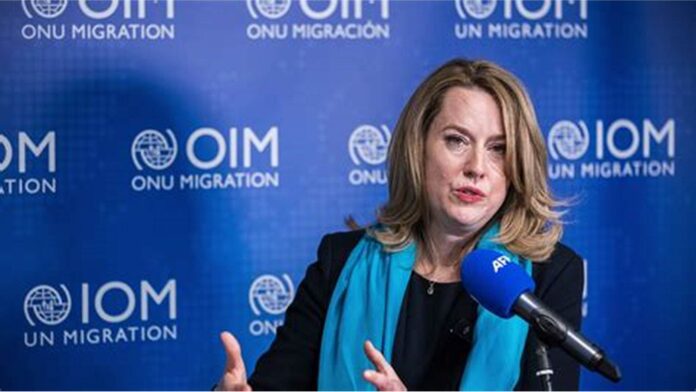
As Uganda gears up to celebrate immigrants on December 18, 2024, experts have called for adoption of workable policies to facilitate migrants’ contributions to the country’s development.
Speaking on a local broadcast on December 17, 2024, the Deputy Chief of Mission at the International Organization for Migration (IOM) Uganda, Sarah Carl, said immigration agencies are striving to build a system that enables people to move in a manner that allows them to harness the full potential of migration and development.
“We seek to highlight how regular migration can be a powerful driver of development in Uganda, not only through remittances but also culture, economic development, and the like,” Carl said.
According to Carl, migration continually increases, driven by factors like climate change, conflict, and demographic changes; therefore, it is key to remember that people were always on the move, causing a change wherever the shift is.
“This reality necessitates a robust framework for managing migration effectively so that it can impact positively on the host countries by bringing great economic development,” Carl stated.
She added that the impact of regular migration contributes significantly to the cultural, traditional, and economic investments in host countries, like Uganda.
“This highlights the importance of regular pathways for development. Regular migration not only supports individual families but also contributes to national development goals,” Carl said.
However, the Assistant Commissioner for Immigration Control at the Directorate of Citizenship and Immigration Control (DCIC), Marcellino Kyamutetera Bwesigye, acknowledged the complexities and myths surrounding migration.
“People often focus on the fearful side of migration, but it’s much broader than what we think,” he said.
He explained the dynamics between voluntary migration, where people move by choice in search of employment, better health conditions, or a change of environment, and involuntary migration, which occurs as a result of conflicts, natural disasters, and other forces.
He emphasized that both immigration and emigration were integral to understanding the migration landscape in terms of development.
Bwesigye explained that positive identification ensures individuals are accurately recognized, while orderly movement facilitates migration according to legal standards, emphasizing the significance of legal migration.
“People yearn to move, but it should always be done in a legal manner. Otherwise, whether you are coming from or going to a destination, you may not be protected,” he said.
As Uganda prepares to celebrate its migrants, the insights underscore the critical role that effective immigration policies play in fostering development. Recognizing the contributions of migrants and promoting regular migration pathways can lead to a more prosperous and inclusive society for all Ugandans.














